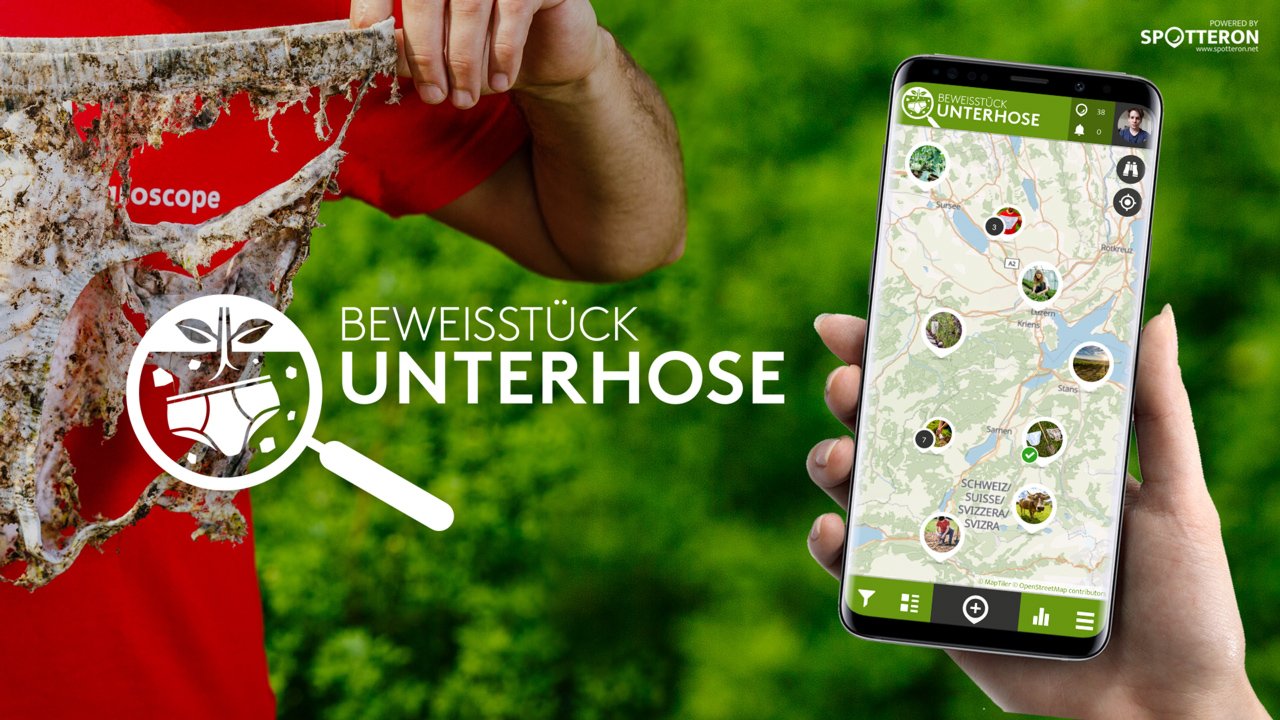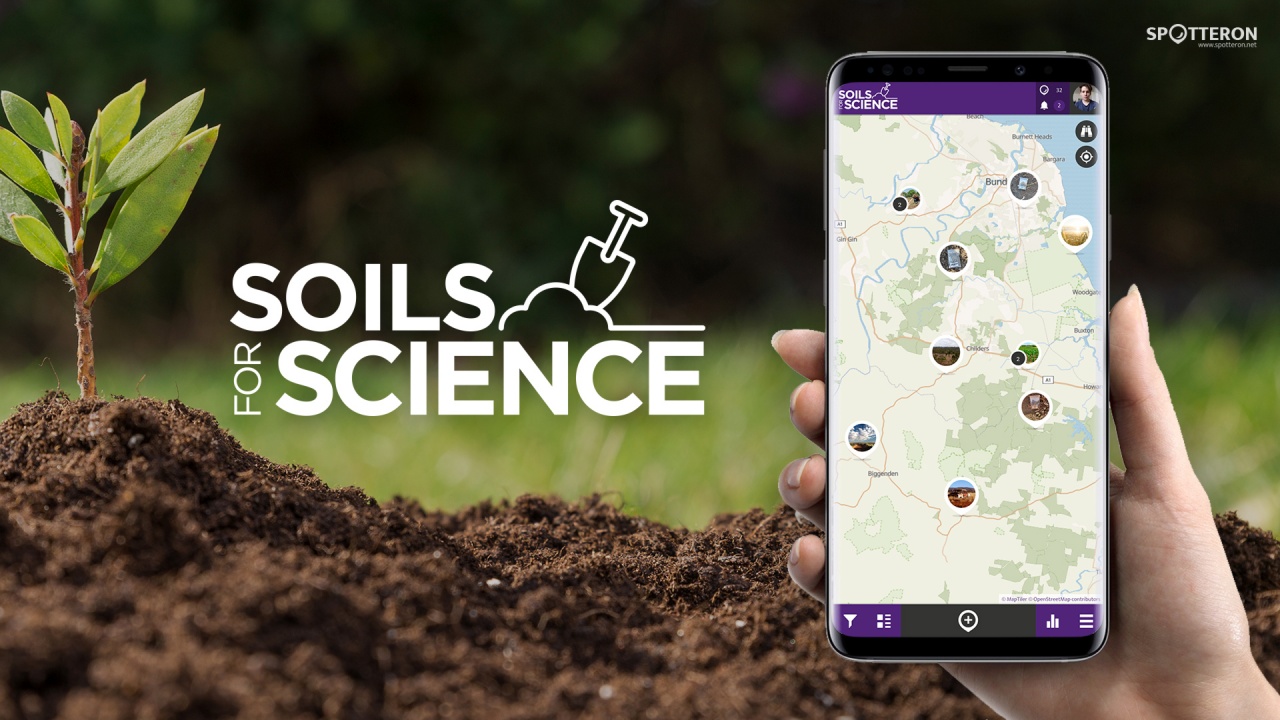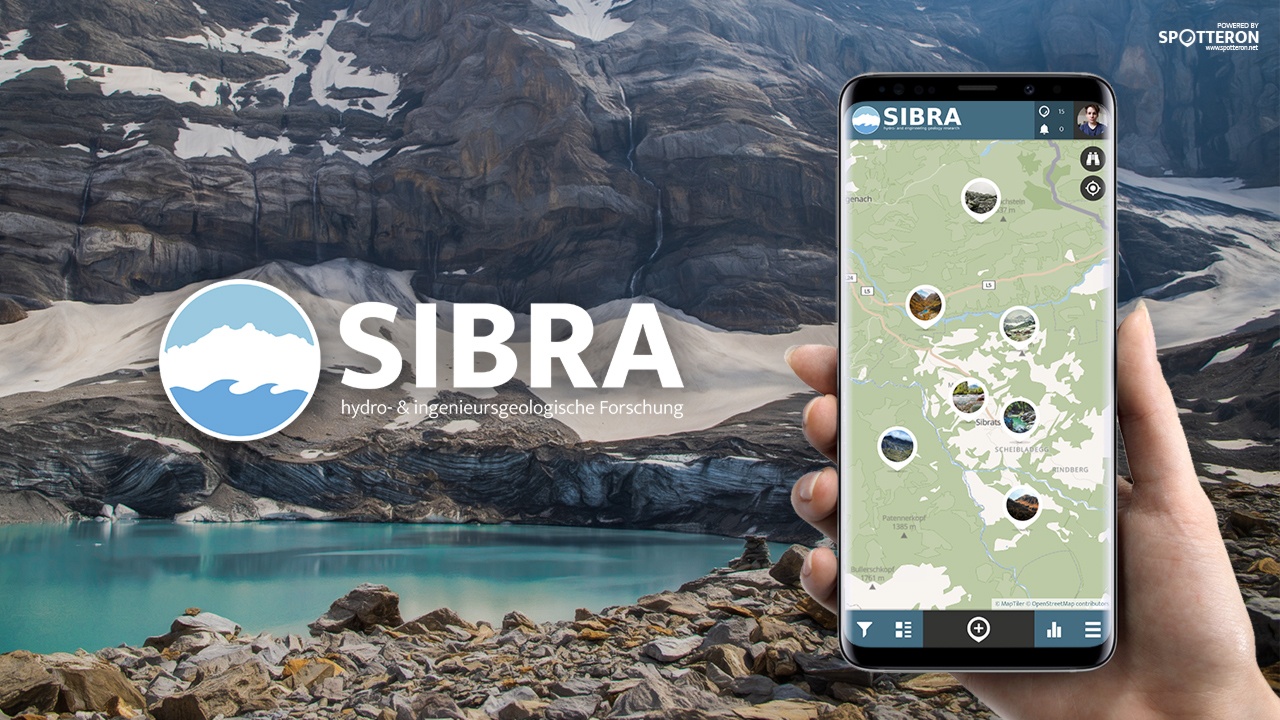Short note: This website is in Beta - we are currently building everything up but you can already find the apps to download and participate! Thank you and stay safe!
Slip of Evidence
Do you know what the connection is between underpants and vegetables? Underpants can be used to assess how alive the soil is. In this Citizen Science project, scientists from the University of Zurich and Agroscope Switzerland are testing whether this is true. 'Slip of Evidence' invites every citizen to join in and do research, whether you are a farmer, hobby gardener, self-supporter or flower lover.
Soils for Science
Soils for Science (S4S) is a citizen science initiative of The University of Queensland, Institute for Molecular Bioscience. S4S aims to inform the public on the importance of antibiotic resistance in modern healthcare, and soil microbes as a source of next generation antibiotics. S4S provides the public with free sampling kits (visit soilsforscience.org.au) to collect soil samples rich in microbial biodiversity (bacteria and fungi). Pure microbes will be isolated by UQ researchers and used as a resource to search for new and improved antibiotics. High resolution images of the microbial communities found in each soil sample will be uploaded to the S4S website, where the public can find their own sample(s), to zoom in and view the marvellous and miniature world of microbes.
The need for antibiotics and Citizen Science
The antibiotics revolution that began early last century with the discovery of penicillin heralded a golden age in healthcare. With the emergence of modern antibiotics, for the first time in human history, infectious diseases were no longer a death sentence. In the decades that followed microbe-inspired antibiotics sparked a revolution in global science, healthcare and commerce, raising the quality of life, and life expectancy of millions (even billions) of people worldwide.
Sadly, in recent years the protection offered by modern antibiotics has waned and, with very few new antibiotics coming to market, and escalating levels of antibiotic resistance, the handful of vintage antibiotics that remain are struggling to provide the level of infection control that the public have come to expect. Antibiotic resistance and an inability to effectively manage infectious diseases have been identified as one of the biggest public health challenges of our time.
Fungal infection. Globally, over 300 million people are infected with a serious fungal infection, 25 million are at high risk of dying, 1.6-2.5 million die each year, and over 1 million are
left blind. Illustrative of the threat, the highly infectious fungus Candida auris causes serious bloodstream infection, particularly in hospitals and nursing home patients, with only a 1 in 3 chance of survival. The first Australian patient with a Candida auris infection was reported in 2019.
Bacterial infection. In the US alone, antibiotic-resistant bacteria cause 2 million infections and >23,000 deaths per year, at an estimated economic impact of USD55-70 billion, while deaths in Europe are estimated at 33,000, and globally at over 1 million per year. Deaths due to antibiotic-resistant bacteria in Australia are higher today than a decade ago.
There is an urgent need to discover new antibiotics.
An Australian Citizen Science App
SOILS FOR SCIENCE will provide the Australian public (home and landowners, schools, community, social and sporting groups and others) with educational material on antibiotics and antibiotic resistance, and the important role played by microbes in the past, present and future discovery of antibiotics. S4S also provides a platform for public engagement in citizen science. Registered S4S APP users (Australia only) can submit an online request for a free soil sampling kit (visit soilsforscience.org.au), which include sample bags, a pre-labelled, pre-paid return postage pouch. All microbes isolated from S4S soil samples will be cryopreserved and registered with MICROBES AUSTRALIA, where they will be queued for taxonomic, genomic, chemical and antibiotic profiling. Promising leads will be prioritised for detailed investigation by University of Queensland researchers, to learn more about the microscopic life with Australian soils, and in doing so assist in the discovery of new antibiotics.
SIBRA
The connections between water and geological underground are diverse and often complicated. With the SIBRA App, you can generate reliable data on these topics and help to a better understanding of these connections. That way, you can contribute to developing models and scenarios that allow for assessing possible effects of extreme weather events, such as rapid snowmelt, flooding or drought.
Citizen Scienctist collecting hydrogeological data
With the SIBRA app, a measuring instrument is now available that complements not only existing measuring methods in the field of hydrogeology and engineering geology and enormously expands the data situation, but also allows interested citizens to actively deal with processes such as geological mass movements and hydrogeology.
Please visit the website about the SPOTTERON Platform on www.spotteron.net
This website uses no external trackers, no analytics, just session cookies and values your online privacy.




